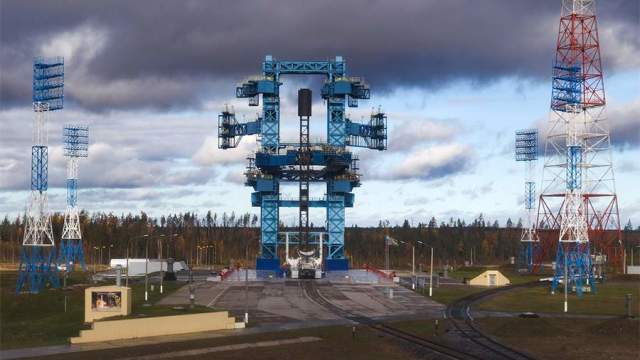The advantage of the new Russian ultralight carrier rocket "Irkut" for space purposes is that it is easier and more economical to use for launching light-class satellites into orbit. Such an explanation on Saturday, October 9, was given in an interview with Izvestia by a military expert, director of the Center for Analysis of the World Arms Trade (CAMTO) Igor Korotchenko.
"To launch small satellites and other devices, we need a small rocket that optimally combines efficiency and cost," he said.
The expert also pointed out the rationality of using such a class of missiles with a small load.
"There is a satellite [weighing] 500 kg, it can be brought out by an ANGARA (launch vehicle - Ed.), which costs a billion [rubles], and it can be brought out by a light rocket, which costs several tens of millions," Korotchenko said.
For the most accurate explanation, he drew an analogy with luggage.
"To transport a lady's handbag or suitcase, you can take a passenger car, or you can take a KAMAZ <...>, just like satellites, there is a light-class satellite, for which a light rocket is enough to put into orbit, which will be cheaper. And you can take out the same satellite with a heavy rocket, which will be 10 times more expensive, and the same light satellite will fly out," said the head of TSAMTO.
He recalled that Irkutsk still has to pass tests before commissioning.
Earlier in the day, the Russian Ministry of Defense published the appearance and technical characteristics of the Irkut launch vehicle. Its launch is planned to be carried out from the Plesetsk cosmodrome in the Arkhangelsk region in 2024.
On October 8, it became known that two launches of the ANGARA-A5 heavy launch vehicle and two launches of its light version are planned from the Plesetsk cosmodrome in 2022. This was reported by the Commander-in-Chief of the Russian Aerospace Forces, Sergei Suroviki.
ANGARA is a family of Russian environmentally friendly launch vehicles of various classes. It includes light carriers "Angara-1.2", heavy "Angara-A5" and upgraded "Angara-A5M", increased payload "Angara-A5B". The first launch of the Angara-A5 took place in December 2014, the second test launch of the rocket was carried out from Plesetsk on December 14, 2020.

